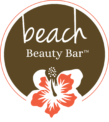Facial oils and oil cleansing are all of the rage these days. We often get asked if facial oils are safe for acne-prone skin.
So, what are facial oils and how do you use them? Are they serums? They’re often packaged in apothecary bottles with droppers, and many skincare manufacturers label them as “facial oil serums.” However, the difference between the facial oils and serums is drastic. What are the differences? Which do you need? Let’s take a look at both of them to break it down for you.
What is a facial oil?
Facial oils are lipids extracted from plants. The formulas may be a single oil or a combination of oils, which contain fatty acids, antioxidants, and nutrients. Oils are generally larger in molecular weight and remain at the surface of the skin, creating an occlusive effect and acting as a protective barrier, which helps skin to retain moisture. They can help to hydrate the skin and strengthen the skin barrier, but they are not the agents of change that serums are.
Coconut oil is one of the most popular facial oils, and it’s also one of the most pore clogging.
If you are working with us in our Clear Skin Program, we do not recommend facial oils for cleansing, hydrating or any other reason.
What is a serum?
Serums are lightweight, highly concentrated formulas with active ingredients that target specific concerns like acne, aging, or discoloration. They’re formulated with small molecular weight ingredients that are readily absorbed by the skin so they can reach the cellular level to effect change. Increasing cellular turnover, boosting collagen production, fading age spots or acne scars, clearing blemishes, and diminishing fine lines and wrinkles are among the benefits that serums can bring.
Do you need a facial oil or a serum?
Every skin needs a serum to help counter visible signs of aging, protect against oxidative stress, and to keep skin tone and texture bright, smooth, and radiant. Not every skin needs a moisturizing facial oil, especially acne-prone skin.
Serums often contain ingredients that help skin retain moisture. Unless you have overly dry skin, adding additional moisture in the form of oil, which can be occlusive and sometimes pore-clogging, is not the best idea. If you have acne-prone skin, you’ll do better with a super-moisturizing serum. Moisture Boost, specially formulated with antioxidants, helps to restore the moisture balance of the skin. It’s a must-have for our clients who are feeling overly dry.
Oils Labeled as Serums
If a product is labeled “Facial Oil Serum,” look carefully at the ingredients. Most oils will diminish the penetration of the actives in a serum and decrease their benefits, so you may be paying a premium for a formula that’s working against itself. Better to keep your actives separate from your moisture factors.
How to Apply Serums
For application, remember the rule of thumb is always light to heavy. Moisturizers, if you’re using them, are always last to seal in moisture and avoid interfering with product absorption.
Must-Have Serums
Deep C, Triple C Serum
No matter your skin type or age, this potent protector is a must for every skin. Use it daily to defend against pollutants, photo-damage, UV age acceleration, and oxidative stress. Three forms of Vitamin C plus Vitamin E make this a super antioxidant. This hydrating serum brightens, help build collagen, and fight free radicals, as well as aid in deterring inflammation.
A Plus Exfoliating Serum
A Plus is a powerful Vitamin A serum that is easily layered into your everyday skincare routine. It targets wrinkles and fine lines, reduces the appearance of large pores, combats uneven skin tone, and helps to reduce breakouts and discoloration.
A Plus combines Retinyl Propionate, Mandelic Acid and Niacinamide.
Retinyl Propionate is the most effective form of Vitamin A in clearing and controlling acne than any other non-prescription retinoid available. It yields the same results as a prescription retinol without the negative side effects. Vitamin A Propionate clears up existing acne, but also helps to fade scarring and prevent new acne impactions from forming.
Clarifying Serum 10
This alpha hydroxy acid provides a gentle approach to targeting acne, aging, and discoloration with dramatic results. Transform skin texture and tone without irritation that can trigger post-inflammatory hyperpigmentation. Ideal for darker skin tones.
Peptide Boost
Our most-loved anti aging serum for both acne-prone and aging skin. This peptide-packed serum treats acne scars, fades post inflammatory hyper pigmentation, and reduces fine lines and wrinkles. Peptide Boost also works to strengthen the skin’s barrier, keeping the skin nourished and healthy.
Peptide Boost encourages cell renewal and reduces wrinkles, acne scarring, and hyperpigmentation with a potent blend of antioxidant, anti-inflammatory, and pro-brightening ingredients. Use it once or twice a day, and it also doubles as an amazing eye serum.
Facial Oils Aren’t Good for Acne-Prone Skin
So there you have it! Don’t always follow the latest beauty trend when dealing with acne. Even though facial oils are all over social media right now, they aren’t the answer for acne-prone skin. Stick with what works. Stick with Beachy Clean Clinical Skincare.
Cheers to clear!
Rene



